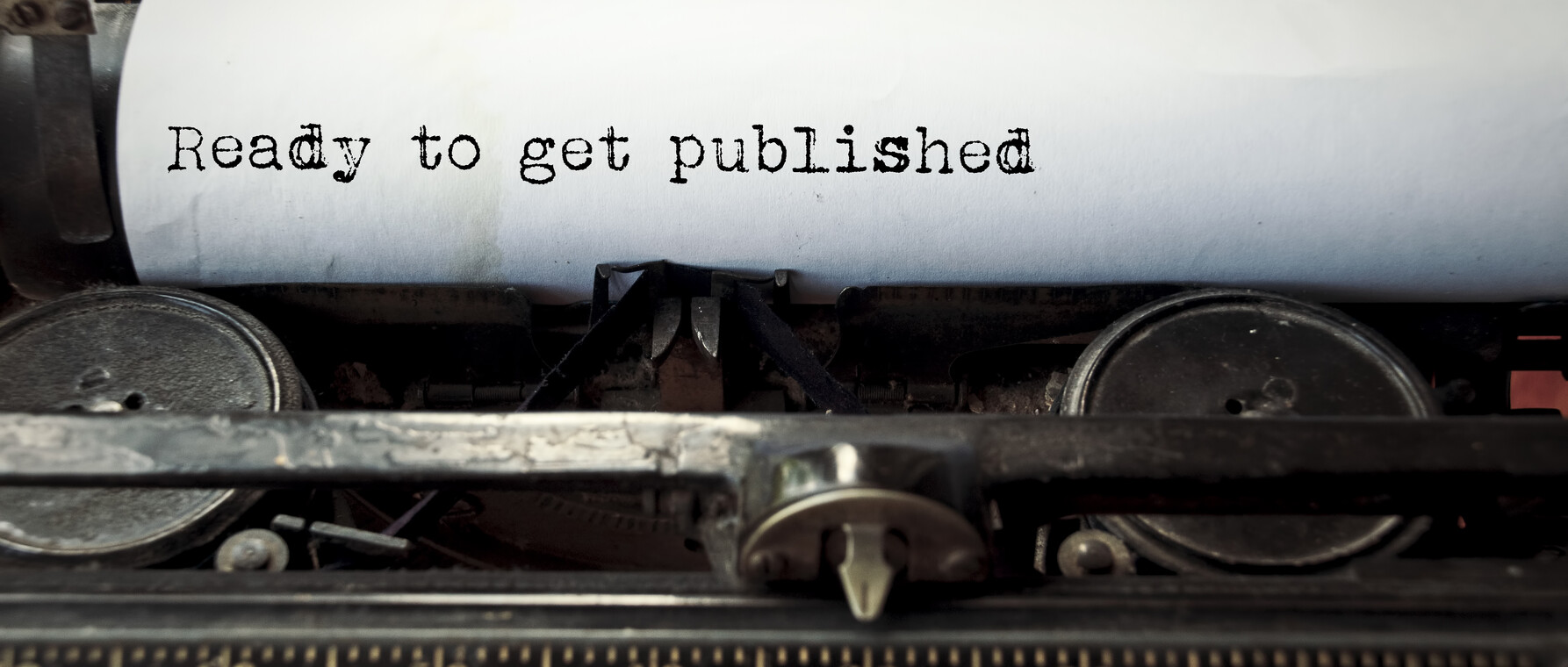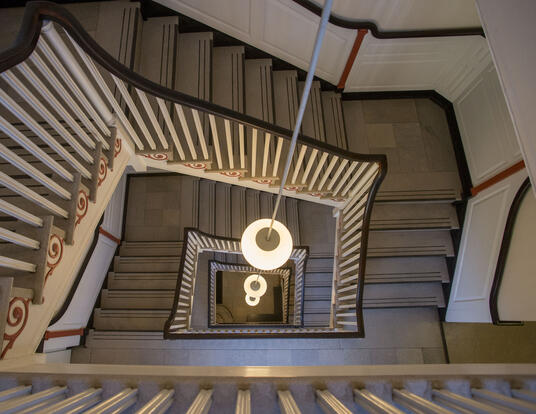Notes From a Writer's Desk: A Crash Course in Academic Publishing

In April, the FWC held its annual speaker series, sponsoring two panels about academic publishing. The first, moderated by postdoctoral fellow Jordan Wilkerson, focused on publishing in STEM journals and featured PLOS editor Debora Walker and Wiley editor Alanna Gannon. The second zeroed in on the humanities and social sciences and covered both books and journal articles. Postdoctoral fellows Alex Creighton and Louis Gerdelan were joined in conversation by special guest speakers Mary Lewis, Robert Walton Goelet Professor of French History, and GSAS alumna Emily Silk, editor for US history, literary studies, and religion for Harvard University Press.
Each panel provided invaluable insight into the publishing process, from both the editor’s and author’s perspectives, while audience questions sparked lively discussion. Below, we will share three key takeaways from each conversation, starting with the Publishing in Science panel.
Panel 1: Publishing in Science
1. How do you select a journal?
There are many scientific journals. Finding the right one for your article depends not only on subject area, but also on what matters to you. For PLOS, Walker stressed, potential impact factor is not as significant as in other cases, while scientific validity, methodology, and ethical considerations carry more weight. Both PLOS and Wiley contain a number of journals within their portfolios. A little bit of research can help you choose where to submit your work: What topics are within the journal’s scope? Who is on the editorial board? Is the journal open access? Indexed? Does the journal charge an APC (article processing charge)? What readers do you want to reach?
2. How do you make a good first impression?
To create a positive first impression, consider three components in how you present the article to editors and readers alike. 1) An effective cover letter, Walker shared, accomplishes several things in clear and concise rhetoric: it shows why your work is interesting, persuades the reader that the work merits a place in the journal, skips the dull or derivative, and poses significant scientific questions along with key findings and the nature of your evidence. 2) The title might seem trivial, yet it will appear in keyword searches and can determine whether the paper gets read. Keep it concise and informative (do not sensationalize), but at the same time, do your best to entice the reader. 3) The abstract is the first part of the paper perused by editors, reviewers, and general readers, and it is captured by such sites as PubMed. Strive to convey critical results and takeaways without jamming in too many details, overreaching, or speculating wildly about where the research might lead.
3. What should you know about peer review?
Peer review is good for both authors and readers, ensuring that research is validated and that articles meet the standards of their discipline. Speaking at length about the peer review process, Gannon shared not only how Wiley selects appropriate reviewers, but also what those reviewers look for in an article: Are the results important? Are conclusions supported by data? Is the work original? Are there any ethical questions or notable mistakes? Reviewers must give clear reasons for accepting or rejecting an article, and they generally utilize a rating system in making their recommendations (e.g., top 5 percent = very important, top 15 percent = important, and so on). Finally, while graduate students are probably concerned with publishing, they, too, can become reviewers; in turn, writing great reviewer reports builds relationships with editors and creates a positive history of correspondence, thus facilitating the process of getting one’s own work published in that journal down the line.
Panel 2: Publishing in the Humanities and Social Sciences
1. Where to pitch your article?
Here are a couple of factors to consider: 1) Who do you want your audience to be? A journal like The American Historical Review will capture historians working in various centuries and on a wide range of topics. One like Slavery & Abolition has an audience that is more narrow. Who your audience is will determine how you present your article, e.g. providing more or less context. 2) Who do you want your reviewers to be? If you submit an article to a more narrowly-focused journal, for example, French Historical Studies, your reviewers will be historians of the Francophone world. But if you submit to a broader journal, like The American Historical Review, your reviewers could be historians who focus on other geographical regions. Do you want to receive broader perspectives on your work?
2. What do I need to know about book proposals?
The central question to focus on is: Who needs this book and why? You’ll want to articulate the two to three audiences for whom you’re writing and why they need this book in a way that an outsider to the field can understand. Ask someone outside your field to read your proposal; that person should be able to grasp the argument and your discussion of how it fits into existing literature. Dr. Silk stressed that you don’t need to convey why the book is a good fit for Harvard University Press, but instead focus on telling us what your book can become (don’t submit a proposal that is a summary of your dissertation chapters). Indicate why the argument matters, specifically for the fields with which the text is in dialogue, along with your vision for the book. Practically speaking, when you submit your book proposal, you should have one to two sample chapters ready to share.
3. How to find a publisher for your book?
Strategies include: 1) look at books in your field, particularly those you like, and those in your own footnotes and see where they’ve been published, 2) follow presses on Twitter to see what they are publishing, 3) read book acknowledgments to see which editors authors speak highly of (a publisher is a relationship), 4) browse tables at conferences and look for books on similar topics to see where they are published, and 5) contact editors at conferences once you have an elevator pitch version of your book (you don’t need to have a whole book written to talk to an editor).
We thank our wonderful panelists once again for sharing their time and knowledge with us. While we have listed just a few of their many insightful points in this post, you can watch the recordings of their entire presentations on our FWC Canvas site, accessible to all Harvard students.
Banner courtesy of Shutterstock
Get the Latest Updates
Join Our Newsletter
Subscribe to Colloquy Podcast
Simplecast Stitcher





